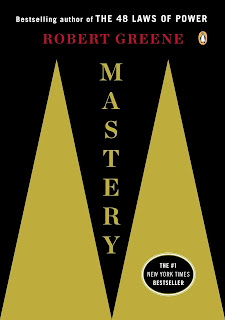A guide on How to achieve Mastery in 5 Steps using Robert Greene's method
Last updated on:
Achieving mastery in any field or skill requires a long-term commitment and a dedication to learning and self-improvement. It is not a one-time accomplishment but rather a continuous journey of growth and development. In his book "Mastery", Robert Greene outlines a five-step process for mastering any discipline, which includes the stages of apprenticeship, dedication, experimentation, mastery, and transcendence. In this blog post, we will break down each of these stages and provide actionable steps for readers to apply towards their own mastery journey.
Step 1 - Apprenticeship
Identify your life's task: What is your mission or purpose in life? What skills and knowledge do you need to acquire to fulfill that task?
Research: Research individuals and organizations in your field of interest and identify potential mentors who have achieved mastery.
Network: Attend events and conferences, join online forums and communities, and engage with others in your field to expand your network and potentially find a mentor.
Reach out: Once you have identified a potential mentor, reach out to them and introduce yourself. Explain why you admire their work and ask for their guidance and mentorship.
Learn from your mentor: When you have secured a mentor, learn as much as you can from them. Ask questions, observe their work, and take note of their advice and recommendations.
Step 2 - Dedication
Once you have secured a mentor, the next step is to dedicate yourself fully to your mastery journey. This involves developing a long-term vision, setting achievable goals, and being disciplined in your learning and practice. Here are some actionable steps for the dedication stage:
Develop a long-term vision: Imagine where you want to be in 10, 20, or 30 years, and what you want to achieve.
Set achievable goals: Break down your long-term vision into smaller, achievable goals that you can work towards each day, week, and month.
Create a learning plan: Design a plan for how you will acquire the knowledge and skills you need to achieve your goals.
Practice deliberate learning: Dedicate time each day to learning and practicing your skills, and measure your progress towards your goals.
Be disciplined: Discipline and consistency are key to achieving mastery. Stick to your learning plan, and make adjustments as necessary.
Step 3 - Experimentation
Once you have dedicated yourself to your mastery journey, it's time to begin experimenting and putting your skills and knowledge into practice. This stage involves taking calculated risks, testing new ideas, and learning from your failures and mistakes. The following steps will help you with the experimentation stage:
Take calculated risks: Don't be afraid to try new things, even if they are outside of your comfort zone. Remember, mastery is about learning and growth, and failure is a necessary part of that process.
Test your ideas: Put your skills and knowledge into practice and test your ideas in real-world situations.
Learn from your failures: Don't be discouraged by failure, but instead use it as a learning opportunity. Analyze what went wrong and what you can do differently next time.
Collaborate with others: Collaborate with others in your field, and use their feedback and suggestions to improve your work.
Embrace uncertainty: Experimentation involves uncertainty, so embrace it and be open to new possibilities.
Step 4 - Mastery
The fourth stage of the mastery journey is all about consolidating your skills and knowledge, refining your craft, and becoming recognized as a master in your field. The following steps will help you achieve mastery:
Refine your craft: Continuously work to improve your skills and knowledge, and seek out feedback from your mentor and others in your field.
Develop good habits: Habits such as discipline, focus, and perseverance are essential for achieving mastery. Make them a part of your daily routine.
Be open to feedback: Seek out constructive criticism, and use it to continuously improve your work.
Share your knowledge: Share your skills and knowledge with others, and give back to your community. This will help solidify your mastery and establish you as a thought leader in your field.
Celebrate your successes: Celebrate your achievements, and acknowledge the hard work and dedication that went into them.
Step 5 - Transcendence
The final stage of the mastery journey is transcendence, where you use your mastery to bring about new ideas and innovations in your field. The following steps will help you achieve transcendence:
Continuously learn and grow: Mastery is not a destination, but a continuous journey of learning and growth. Keep seeking out new knowledge and opportunities to improve.
Apply the laws of nature: The laws of nature, or hidden patterns and principles that govern the universe, can be applied to various fields and skills. Study these laws and apply them to your own work to bring about new insights and innovations.
Be creative: Creativity is a key component of mastery and transcendence. Cultivate a creative mindset, and seek out new and innovative ways to apply your skills and knowledge.
Collaborate with others: Collaborate with others in your field, and work together to bring about new ideas and innovations.
Give back: Use your mastery to give back to others, and share your skills and knowledge with future generations.
In conclusion, mastering any discipline requires a long-term commitment, a dedication to learning and self-improvement, and a willingness to experiment and learn from failure. By following the five steps of apprenticeship, dedication, experimentation, mastery, and transcendence, you can achieve mastery in your field and bring about new ideas and innovations. Remember, mastery is not a destination, but a continuous journey, so keep learning, growing, and giving back to others. If you'd like to learn more about the subject, go straight to the source and order a copy of the book in Audio, Print or E-Reader from Amazon.



Comments
Post a Comment